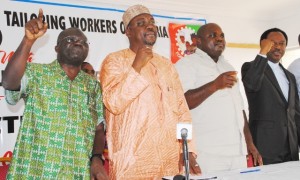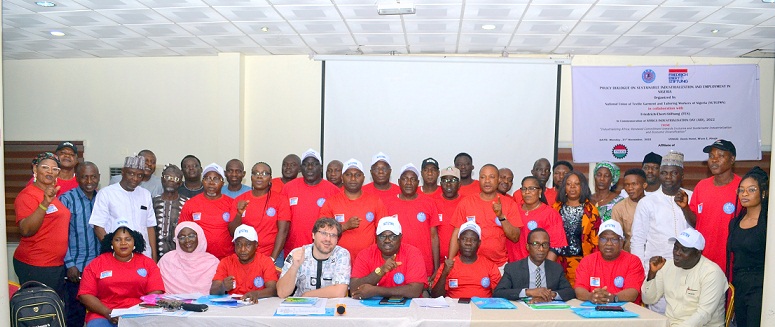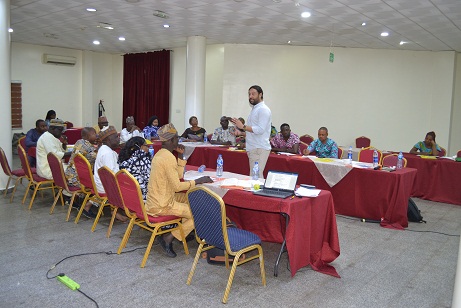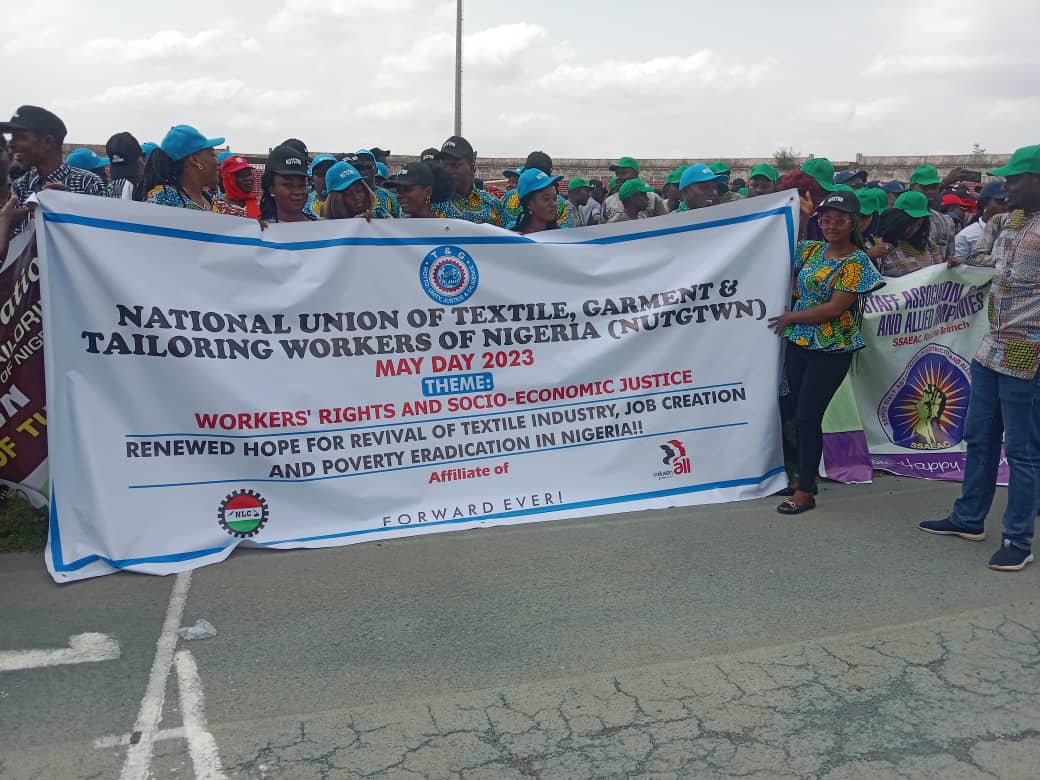Why Labour is concerned about Democratic process
Union members are not just workers but citizens. Beyond productivity, wages, conflicts and conflict resolution in the workplace, workers are also interested in who govern the country and how decisions that affect their lives are made.
Trade unions are products of democratic process and they have a lot to offer in the democratization process of the country. Indeed the history of the historic struggle for democracy in Nigeria will not be complete without significant sacrifices and contributions of the Nigeria Labour Congress (NLC).
Also our history also shows that without democracy trade union will always be worse off. Military dictatorships of the recent past in Nigeria violated trade union and human rights. Thus democracy is not just a means but an end for trade unions.
NIGERIA DEMOCRATIC PROCESS; PROGRESS AND PROSPECTS
- Since the return to civil rule in 1999, Nigeria has made significant progress in democratic development.
- In Quantitative terms, for instance, with close to 63 political parties, Nigeria has the highest number of turn over of Political Parties in Africa! Nigeria is truly a multi-party democracy like Britain, South Africa, India, USA and Ghana.
- Also Nigeria has conducted 4 transitions of one Federal government to another without the military intervention. With all their limitations, we must commend the INEC, the political parties and Nigerian people for managing these transitions. The most challenging transition was in 2010, following the death of the sitting President Umar Musa Yar’Adua. The management of that singular transition showed the strength of Nigeria’s democracy.
- With average, 80 million registered voters and thousands of national assembly, presidential and governorship candidates Nigeria is truly a democracy destination. We are not short of choices of who should govern.
- Nigeria has the biggest Parliament in Africa (Bicameral Legislature).
The 7th National Assembly (2011 -2015) was inaugurated on 6th June, 2011. Out of the 109 Senators of the Senate, 36 were re-elected while 73 were elected for the first time. The House of Representatives of the 7th National Assembly was also inaugurated on the 6th June 2011. Out of the 360 members of the House of Representatives, 100 were re-elected while 260 were elected for the first time. In number of parliamentarians, South Africa compares to Nigeria. Its National Assembly consists of 400 members, elected by voters on a proportional representation/party list system.
- After the General Election 2010, UK 650 MPs were elected.
Ghana has 275 single-member constituencies. We can see that Nigeria belongs to the Committees of nation with active representative government.
PROBLEMS
- The critical issue is the quality of this democratic process.
- Qualitatively there are still problems.
- The result of every presidential or state election is ever disputed than the previous ones. We must therefore invest more on the electoral system to produce free and fair elections. We must support INEC’s effort for free and fair election in 2015. We are encouraged with the new sense of purpose of INEC leadership to conduct free and fair election. We are encouraged that the Independent National Electoral Commission (INEC) has warned its personnel to avoid anything that could scuttle the 2015 general elections. The world is not just watching the commission as the commission’s Chairman, Prof. Attahiru Jega, rightly observed but the world will hold the INEC accountable for the quality of the next election in terms of availability of voting materials, integrity of INEC officials, voting, vote counting and announcements of results. Let the next elections be finalized at the polling boots not at the courts.
- Another critical institution for the next elections is the Nigeria Police Force. As a matter of fact the critical security institution in a democracy is the police. Since he assumed office, Nigeria Police Force (NPF) Inspector General, Mohammed Abubakar has tried to reposition the police, terminating the checkpoints which hitherto were being used for extorting poor Nigerians. The IG has also commendably improved on the welfare and training of the service men and women. However the real acid test for the police is the coming election. We are encouraged that the said Inspector-General of Police, Mohammed Abubakar has taken the proactive action by meeting with his senior officers to review the current security and political situations across the country. Last year the IG launched a Code of Conduct for police officers. It’s time for the force to implement this Code which insulates police men against partisanship and ensures the police is fair and just to all Nigerians regardless of status.
LONG WALK TO DEMOCRACY, NOT SHORT CUT
- No matter what the police and State Security Service do, a lot depend on the activities of the political actors. Our politicians must return to politics 101 and do the first thing first; put the people and the nation first. Political actors must get themselves right. Nigeria has the highest number of political parties but the difference between these parties is not clear. Our parties are more in quantity rather than quality. No programme of actions and no commitment to ideologies and visions for the country.
- Political parties have sadly become hired vehicles to move from pillars to posts in a desperate move to be in office for power and money rather than for service. Defections, shameless carpet crossing and non-issue based statements have become the order of the day. Electorates are increasingly confused as they are made to be in a party in the morning, ask to move to another party in the afternoon and at night defect to another party.
- Labour must help to reverse this distortion in our party politics. We must encourage our politicians to have a LONG WALK (not short cut!) TO DEMOCRACY. Please let there be disagreements and contestations but let the disagreements be based on issues. Citizens must rise up to demand for accountability not after the elections but even now before the elections. We must vote for issues of developments not just persons of means and money. Here are some of the issues labour must put on the agenda.
ISSUES OF INTEREST TO LABOUR/CITIZENS
- Electrification
- Industrialization
- Security
- Jobs/Employment – Youth Employment, Decent Work
- Good Roads
- Mass Transit – Railways
- Hospitals/Clinics
- Education
- Improved Wages
- Social Security
- Pension Issues, etc.
WHO SPEAKS FOR NIGERIA?
 On events in South Sudan, in Central Africa Republic. Africa cannot just be united on Africa Cup of Nations or Orange cup of nations. We must be united on democracy, peace and development.
On events in South Sudan, in Central Africa Republic. Africa cannot just be united on Africa Cup of Nations or Orange cup of nations. We must be united on democracy, peace and development.
Thanks.







